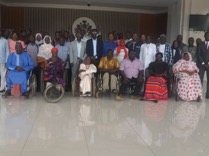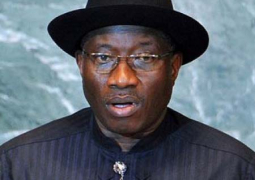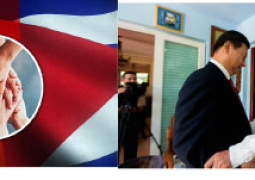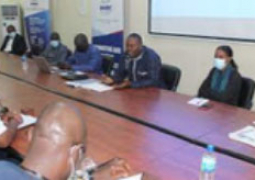
At a two-day dialogue forum held at the SDKJ International Conference Centre, the NHRC engaged state and non-state actors on the implementation of the 2021 Disability Act aimed at promoting and protecting the right of persons with disabilities.
The forum, which brought together stakeholders from various ministries, departments and civil society organizations, aimed at addressing pressing issues concerning persons with disabilities and at expediting the implementation of the Disability Act 2021.
Stakeholders, who were engaged in meaningful discussions, shared insights and collaborated on strategies to address the challenges faced by persons with disabilities and ensured the protection of their rightsat large.
In his welcoming remarks, Emmanuel Daniel Joof, Chairperson of NHRC, said that despite all the guarantees or provisions in the constitution, bill, and ratified conventions and acts, persons with disabilities continue to face numerous barriers to fully realise their basic fundamental rights and their full participation in the life of their communities in The Gambia.
According to the Borgen Project publication in September 2023, titled Disability Rights in the Gambia, “7.9% of the population or just over 208,000 people suffer from one kind of disability or condition” that makes everyday life, work and interaction with society difficult.
The study further stated that the unemployment rate disproportionately affects disabled Gambians as well, which indicates that 68% of disabled Gambians between ages of 15 to 24 are unemployed compared to 50% of those who are not disabled, and half of disabled Gambians are not in education, employment or training compared to 34% of those without disabilities.
However, Chairman Joof said: “Without a proper education or career prospects, people living with disabilities in the Gambia are unlikely to fully integrate into society or earn good wages, and thus putting them at further risk of exclusion and poverty.”
He added: “It is proven that PWD have been subjected to discrimination at homes, schools and offices affecting their education and employment.”
For his part, Saikou K. Sanyang, permanent secretary for the Ministry of Gender, Children, and Social Welfare, who represented the minister, said the ministry, with support from the United Nations Funds for Population Activities (UNFPA), would conduct a research on disability matters across the country.
“Plans are in place to mobilise resources to conduct national survey on the prevalence of disabilities in the country,” he added.
Speaking further, he said: “The ministry has allocated budget lines for the National Disability Advisory Council, subvention for Gambia Federation for the Disabilities (GFD) and family strengthening programme which also targets PWD’s pending approval from the Ministry of Finance for next year and beyond.”
GFD Chairperson Muhammed Krubally, in his remarks, said that in collaboration with partners, GFD continues to advocate for respect and to give advice on the fundamental human rights of persons with disabilities.
“The persons with disabilities remain to be vulnerable in the society for far too long as they have been denied of their co-existence and their basic rights,” he bemoaned.
He also indicated that despite the existing fundamental human rights, if the Gambia Government and its agencies did not implement those legislations it would only promote the violation and discrimination of PWDs.
He further called on the government to champion the implementation and enforcement of the Act.





